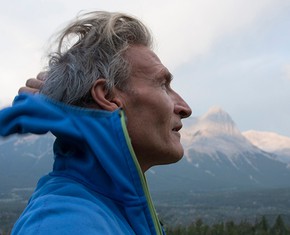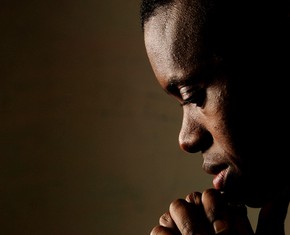The views expressed in our content reflect individual perspectives and do not represent the authoritative views of the Baha'i Faith.
To find God, we must first seek Him. This seems obvious. If we lose our keys, we need to look for them. But because God is far more elusive than a set of keys, this search naturally becomes more subtle.
In a Zen tale we learn of an arrogant monk who claimed to want to acquire more wisdom. He called on a Zen master and asked for instruction. The master listened to the student’s fake “plea” to be “taught” as he poured tea into a cup. Even when the cup was overflowing, he continued to pour. Finally the student said, “you can’t put any more tea in the cup – it’s full!” “Exactly” the master said. “Likewise, go and empty yourself of all your learning and then return to me!”
If we want to seek God, before all else, we need to empty ourselves. Baha’u’llah says:
O My brother! When a true seeker determineth to take the step of search in the path leading unto the knowledge of the Ancient of Days, he must, before all else, cleanse his heart, which is the seat of the revelation of the inner mysteries of God, from the obscuring dust of all acquired knowledge… – The Book of Certitude, p. 192.
If we want to find God and be able to recognize Him, we aim to empty ourselves of the “obscuring dust” of our own learning, so that with a pure heart and clear vision, we can see the truth clearly, not through the lenses of our past conditioning. The Baha’i teachings view knowledge as a noble thing, but it can also debar us from reality. It is good to become learned, as long as our learning does not make us proud and overly attached to our own ideas. Of this Baha’u’llah says:
Blessed are the learned that pride not themselves on their attainments. – Gleanings from the Writings of Baha’u’llah, p. 315.
All the practical and intellectual learning we undertake has highly worthwhile results. Our knowledge of history, science and art often proves invaluable, but it has its limits when trying to comprehend the limitless reality of God. Spiritual principles operate on a higher plain, and hence require a heightened sense of perception not tainted or distorted by worldly knowledge or experience. Baha’u’llah explains that the seeker will not reach his goal:
…unless he sacrifice all things. That is, whatever he hath seen, and heard, and understood, all must he set at naught, that he may enter the realm of the spirit, which is the City of God. – The Seven Valleys, p. 7.
Along with emptying ourselves of our attachment to knowledge, we can also strive to empty our hearts of worldly sentiments. Baha’u’llah says of the true seeker that:
…he must so cleanse his heart that no remnant of either love or hate may linger therein, lest that love blindly incline him to error, or that hate repel him away from the truth. – The Book of Certitude, p. 192.
All spiritual seekers know that we should free ourselves of hate. But why do we also need to free ourselves of love?
In this context, I believe love refers to our natural human attraction to the world. It does not mean we should stop caring for others, it means we should stop desiring things. On the other hand, hate comes from our fear of the world. In a word: we either try desperately to gain something, or try desperately to run from something. We endeavor to have money, fame, success, pleasure and excitement, and equally, we run from the opposites of these things: pain, poverty, rejection, humiliation etc.
This desperation not only makes us incredibly discontent, it also makes it very difficult for us to recognize spiritual truth. The acceptance of truth demands total detachment. In order to see what is real and live according to reality, we must not try to gain something from it. Also, in order to accept a truth that is beyond our own minuscule comprehension, we must be open to accepting things that may not be easy at first.
So does this mean that all desires and fears are bad? Clearly not. Baha’u’llah explains that it is perfectly acceptable for us to enjoy the things of this world, so long as they do not stand between us and God. Likewise, there are many fears that help us. A sensible fear of death, for instance, makes sure that we don’t walk out into traffic. But our biggest love should be for God, and our biggest fear, separation from Him.
To begin the search for God, we must see through our own worldly knowledge and feelings—so that unhindered we may advance towards Him.
















Comments
Sign in or create an account
Continue with Googleor